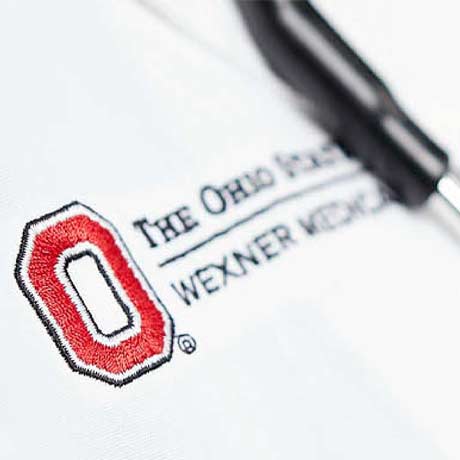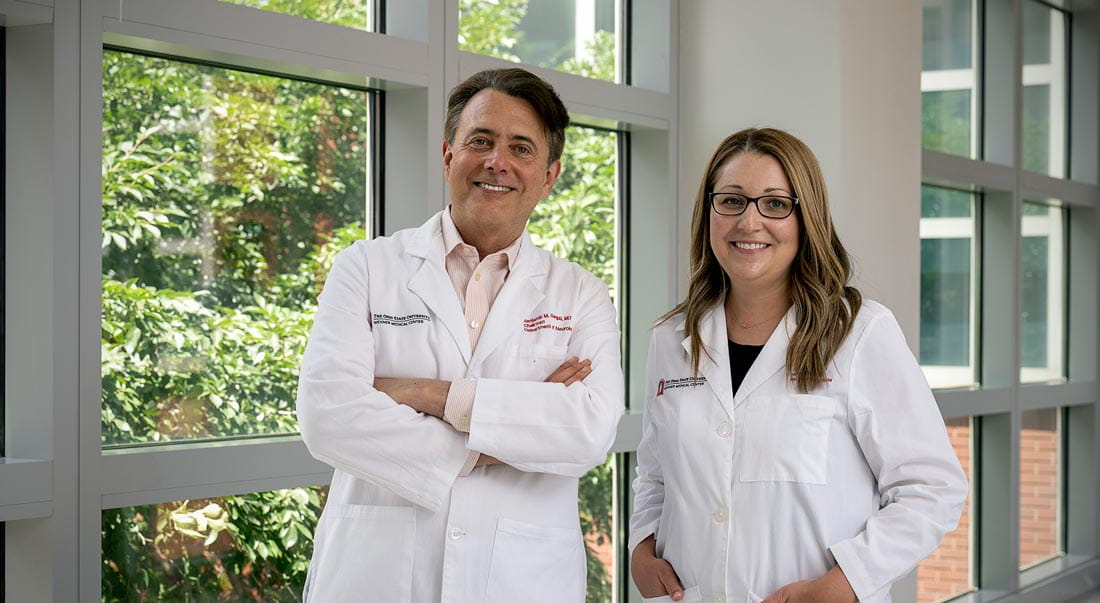
Annual Retreat and Educational Events
Our mission is to create a world-class infrastructure and collaborative community that facilitates interdisciplinary research of neurological disease and injury, to build bridges between innovative translational neuroscience research and clinical implementation, and to foster educational and professional development opportunities for junior investigators in the field.
The Neuroscience Research Institute (NRI) was created to enhance the quality and breadth of neurological-related research at Ohio State by providing an infrastructure with an emphasis on translating research discoveries into clinical interventions. Comprehensive resources include an integrative brain bank and biorepository, mentorship and career development opportunities for junior investigators, and world-class educational symposiums. Another goal of the NRI is to foster cross-campus interdisciplinary collaborations with an emphasis in animal model, high-throughput assay and experimental therapeutic development.

Benjamin Segal, MD
Chair, Department of Neurology; Director, Neuroscience Research Institute Co-director, Neurological Institute
Erica Bell, PhD
Associate Director, Neuroscience Research Institute; Associate Professor, Department of Neurology
If you are looking for a neuroscience-related collaborator, complete the request form and the NRI will assist with identifying a potential collaborator.
The Center for Neurobiology of Aging and Resiliency (CNAR) is a translational research center within the Neurological Research Institute that’s focused on understanding and optimizing aging of the nervous system. The risk for developing neurological disorders increases with age, and many geriatric syndromes are largely explained by neurological dysfunction. Because the global population is aging rapidly, optimizing neurologic health in older adults is imperative. CNAR aims to translate research discoveries to improve health-span and function in older adults using multidisciplinary and integrative approaches. We focus on three main areas: